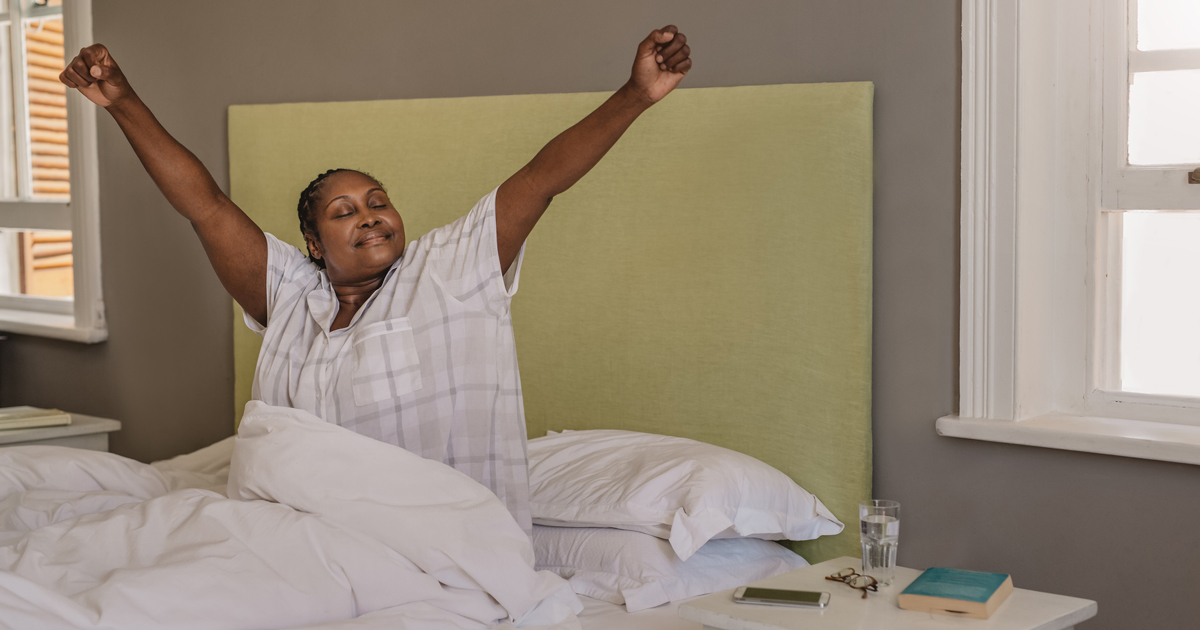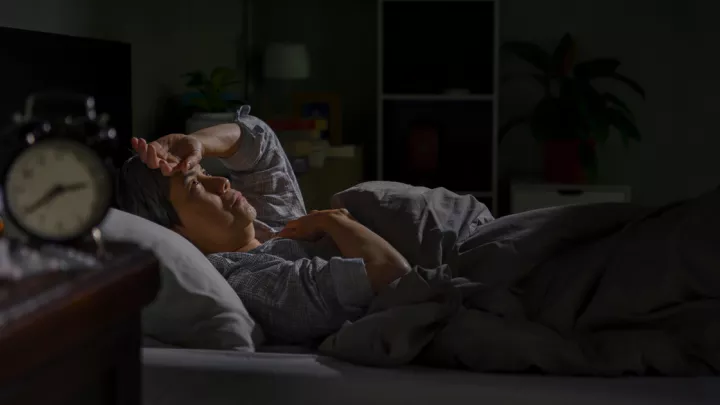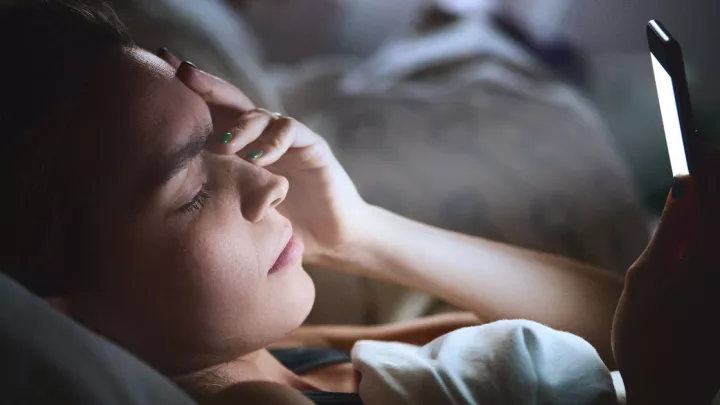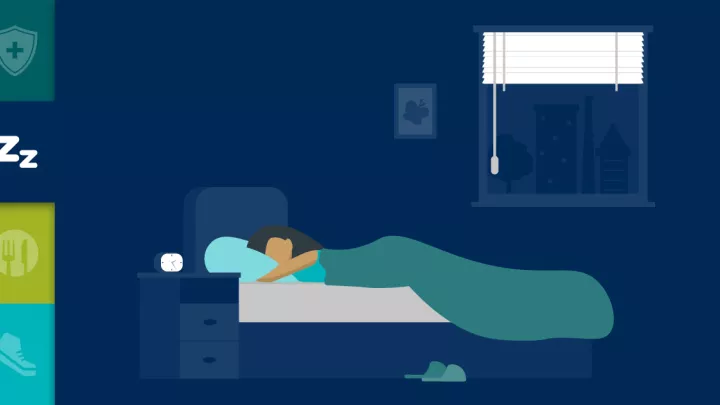Why can't I sleep? 6 tips to help you sleep better

We've all experienced the boosts in mood, health and productivity that a refreshing night of slumber grants. Yet finding the time to snooze can be a struggle.
Family medicine physician Neil Kalsi, MD, is a big fan of sleep's potent properties. "A lot of important physiological functions at night help us stay healthy. Sleep is so important," he says. "If you're not consistently getting eight hours of sleep on average, you are taking a toll on your health."
Looking to improve your sleep hygiene and bedtime habits? Here Dr. Kalsi gives six science-based tips to help you sleep better.

1. How long caffeine stays in your system
You might not think much of an afternoon can of pop. Or maybe you like to drink coffee with your evening meal. But caffeine can stay in your system a lot longer than you think – and affect a good night's sleep.
"I recommend stopping all caffeine by mid-afternoon," says Dr. Kalsi. "That includes caffeinated teas, coffees and sodas."
As we age, we can become more sensitive to caffeine. Older adults may need to curb their caffeine consumption if they notice it disrupting their sleep.
2. Energy-boosting alternatives to caffeine
"Healthy snacks, like a fruit or vegetable, can be energizing," says Dr. Kalsi. "Drinking lots of water can also help us stay awake."
And don't underestimate the impact of a quick exercise session. "Even light exercise can be quite helpful for a quick energy boost," adds Dr. Kalsi. "A brisk walk, quick swim or dance session in the afternoon can help you power through to the evening."
3. Alcohol's impact on sleep: retire the nightcap
Alcohol may help you feel tired, but the quality of sleep after drinking is not great. Even if you're asleep for six to eight hours, your time asleep isn't as rejuvenating or refreshing as sober sleep.
"Alcohol affects your sleep cycles, so you don't get that natural, healthier sleep that you'd get while sober that makes you feel great in the morning," explains Dr. Kalsi.
"Substances you're using – smoking, alcohol and drugs – can interfere with sleep," adds Dr. Kalsi. Dr. Kalsi cares for several patients with alcohol use disorder and opiate use disorder.
A sleep medicine specialist can help. Call 800.922.0000 to make an appointment.
4. The right time to nap
If you're struggling to fall asleep each night, napping during the day may make nighttime sleep harder. That's because naps take away "sleep pressure" – the signals in your body that say you need rest.
If you find yourself falling asleep easily each night, however, it's OK to nap. There's even an optimal time.
"The best time to have a nap is in the 1 to 3 p.m. range," says Dr. Kalsi. "There's a natural drowsiness phase in our day in the early afternoon. In other countries, they take advantage of this time to nap with a siesta."
5. Screens interfering with dreams
Screen time before bed is like wearing pajamas to work: confusing and sends the wrong message.
"Screens like your phone, computer or TV are very activating to your brain," explains Dr. Kalsi. "Similar to sunlight, the light from screens signals to your brain that it's time to wake up. The light is actually stimulating to your brain, and browsing your phone or watching TV before bed isn't a healthy way to fall asleep."
Find out why reading the news for hours at a time – also called doomscrolling – can cause anxiety and disrupt your sleep.
6. Use light to your advantage
You might consider a daily dose of sunshine to help you shake the sleepiness when you wake. Morning exposure to daylight can help your body get into a routine that makes you naturally feel sleepier at night.
"Our bodies are naturally meant to get up when the sun's up," says Dr. Kalsi. "The light from the sun helps wake us up. In the wintertime, you can use a sun lamp to mimic the natural light of the sun."
Ideally, you'll want a lamp that provides 5,000 to 10,000 lux of light. Place the sun lamp about 12 to 14 inches away from your eyes, depending on the lamp size, and have the light pointing down at you.
Healthy sleep habits
Try these healthy habits to help you get a good night's rest:
- Stick to a standard time for bed and time to get up every day
- Incorporate a calming bedtime routine to prepare your body and mind for sleep
- Ditch all electronic devices an hour before bedtime, as they may suppress the body's natural release of melatonin
- Invest in a comfortable bed, reserved for sleeping (not working or watching television)
- Create a dark, cool and relaxed environment
- Exercise during the day, preferably earlier in the day
- Stop caffeine intake after lunch
- Get exposure to light in the daytime
Plus, find out why melatonin supplements can help in the short term but aren't a long-term fix.







